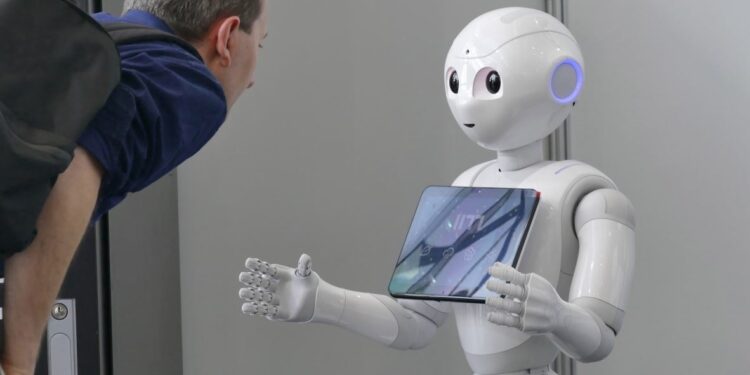Artificial intelligence (AI) is revolutionizing the way businesses operate across industries. From enhancing customer experiences to optimizing operational processes, AI is reshaping the business landscape. In this context, it is crucial to consider the distinction between skills and competencies within the workforce. This blog delves into some key aspects of how AI is transforming businesses, examining the implications of these changes.
Enhancing Customer Experiences
The potential of AI to improve customer experiences is considered as its most important contribution to businesses. By utilizing sophisticated data analytics and machine learning algorithms, businesses can get a significant understanding of consumer behavior, inclinations, and attitudes. Businesses may anticipate client demands, personalize products and services, and provide specialized experiences that increase customer happiness and loyalty by using this data-driven strategy.
Introducing Chatbots
For instance, chatbots and virtual assistants driven by AI are being used in many businesses to offer clients real-time support and help. These intelligent technologies enhance the effectiveness and accessibility of customer care by being able to comprehend natural language, analyze consumer inquiries, and deliver pertinent information or solutions around-the-clock.
Personalization with AI
AI-driven recommendation engines are transforming the way businesses engage with their customers by offering personalized product recommendations based on individual preferences and past interactions. This not only facilitates cross-selling and upselling opportunities but also enhances the overall shopping experience for customers, leading to increased sales and customer retention.
Optimizing Operational Processes
Artificial Intelligence is not only enhancing client experiences, but also transforming internal corporate operations. AI technologies help businesses boost productivity across a range of services, cut expenses, and increase efficiency by automating repetitive tasks and optimizing workflows.
Save on Downtime
In the manufacturing industry, AI-driven systems examine volumes of sensor data to identify possible equipment problems ahead of time. This enables businesses to plan maintenance and save downtime. Similarly, AI algorithms in supply chain management optimize demand forecasting, route planning, and inventory levels, assisting businesses in streamlining their logistical processes and raising supply chain efficiency.
HR Revamped
AI is also reinventing workforce management, employee engagement, and talent acquisition, revolutionizing the human resources sector. AI-driven HR analytics tools offer insights into employee performance, satisfaction, and retention, enabling businesses to make data-driven decisions. AI-powered recruitment platforms use data analytics and natural language processing to more effectively identify and attract top talent.
Driving Innovation and Competitive Advantage
AI promotes innovation and gives businesses a competitive edge. They can create cutting-edge goods and services that stand out from the competition and satisfy changing consumer needs. This is done through AI technology like computer vision, natural language processing, and machine learning.
Data Driven Insights
AI-powered robot-advisors are transforming investment services in the finance sector. This is by providing individualized investment recommendations based on client risk profiles and financial objectives. Comparably, AI-driven diagnostic tools and predictive analytics algorithms are transforming patient care, treatment planning, and disease diagnosis in the healthcare industry, improving health outcomes and lowering costs.
Human-AI Collaboration

While Artificial Intelligence (AI) technologies are great at processing data and seeing patterns, human intuition and problem-solving skills are essential. Employees who possess critical thinking abilities can work well with AI technologies, deciphering data and tackling difficult problems that might not have obvious answers.
Fostering a Harmonious Workplace
Collaboration and interpersonal skills are becoming more important in the workplace as AI gets common. Teams that include AI and human members must collaborate and communicate well to exploit their synergies. This collaborative approach creates a nice work environment in addition to increasing productivity.
Ethical Considerations and Challenges
Although there is no denying AI’s revolutionary potential for the corporate world, there are significant ethical issues and concerns that come with it. The growing autonomy and intelligence of AI systems give rise to concerns about algorithmic bias, data privacy, and the moral application of AI. Additionally, as businesses navigate this transformative landscape, it becomes imperative to address workplace insubordination.
To ensure accountability, justice, and openness in their AI-driven decision-making processes, businesses must place a high priority on ethical AI development and deployment standards. Proactive steps like data anonymization, bias detection, and algorithmic auditing are necessary to guarantee that AI technologies work best for society and reduce unforeseen effects.
The integration of AI in business signifies a shift that could lead to the production of value, the opening of new opportunities, and significant changes in the direction of business.































